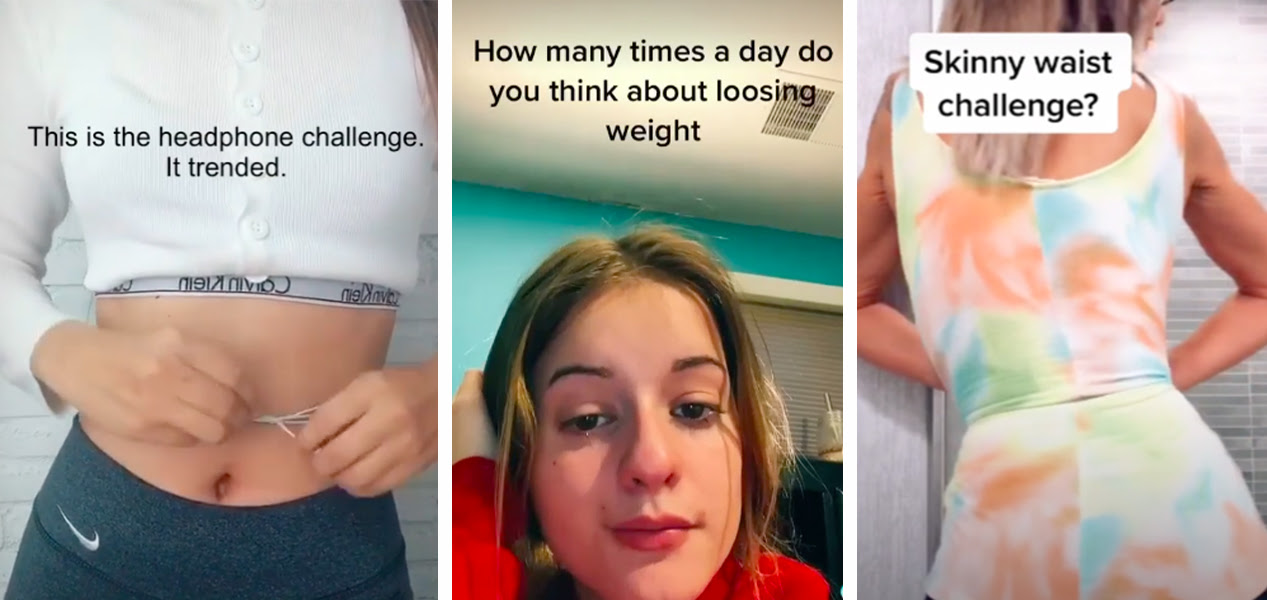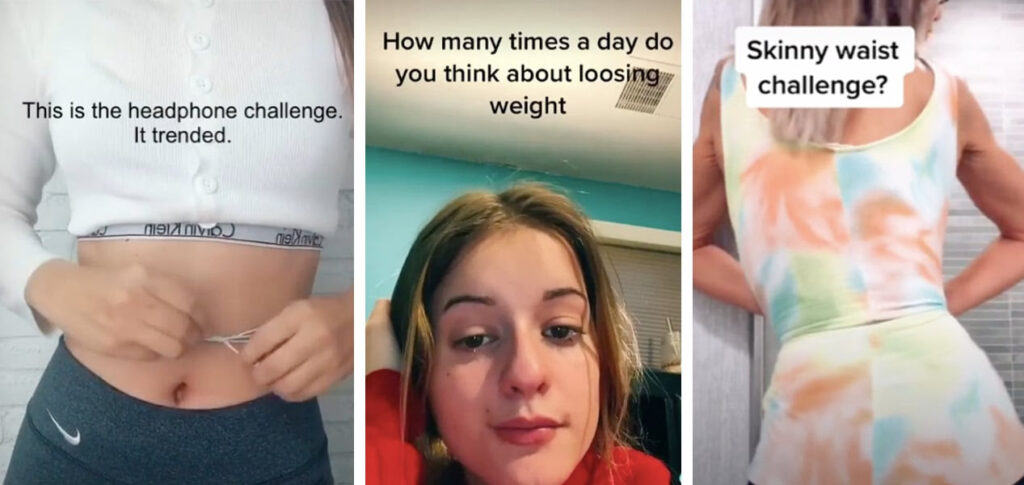 |
| Do these ‘health hacks” work or do they only fuel body image issues and eating disorders?
A study of TikTok’s nutrition-related content found the app’s users perpetuate diet culture through videos glorifying thinness and weight loss. Researchers from the University of Vermont (UVM) say this might contribute to eating disorders and a negative body image among young people, who are the app’s primary users. Researchers from UVM found that the most-viewed nutrition and food content promoted “weight-normative messaging.” That type of content asserts “health is only possible at a specific weight, weight and disease are linearly related, and one has a personal responsibility for meeting weight expectations,” according to the study. Content on TikTok “included the glorification of weight loss in many posts, the positioning of food to achieve health and thinness, and the lack of expert voices providing nutrition information.” Lizzy Pope, the senior researcher at UVM and co-author Marisa Minadeo, looked at videos with hashtags like #bodypositivity, #fatloss, #mealprep, #plussize, #weightloss, #weightlosscheck, #whatieatinaday, #weightlossjourney and #nutrition in the study, analyzing body-image and nutrition content on TikTok and the impact it is having on its users. Pope and Minadeo assessed that social media often is responsible for diet culture among young adults, which the study claimed, “oppresses people who do not match up with the prescribed vision of ‘health,’ most frequently women, trans people, larger-bodied people, people of color, and people with disabilities.” They also argued the “ubiquitous nature of diet culture follows logically from weight normativity as weight management is seen by both as essential to health.” In contrast, bodies come in a variety of shapes and sizes and people in “all body sizes can achieve health if given the opportunity to pursue health behaviors and access to non-stigmatizing health care.” The top 10 diet and nutrition trends making the rounds on TikTok In February 2021, TikTok implemented censorship policies on eating disorder content, but the research claimed the app may contain “a substantial amount” of content that reinforces diet culture and may have a negative impact on body image.
Almost 44 percent of all the videos analyzed for the study included content about weight loss, while 20.4 percent of videos showed a person’s weight transformation. One hashtag, #whatieatinaday (14.6 billion views), “has become so weight normative and triggering,” videos now carry a trigger warning for eating disorders and include a link to the National Eating Disorder Association’s helpline as so many of the video creators were promoting how little they ate in a day. Is the diet advice on TikTok dangerous? Some of the popular trends include: Lettuce water Healthy Coke Frozen honey Cloud bread Mug cake
|

